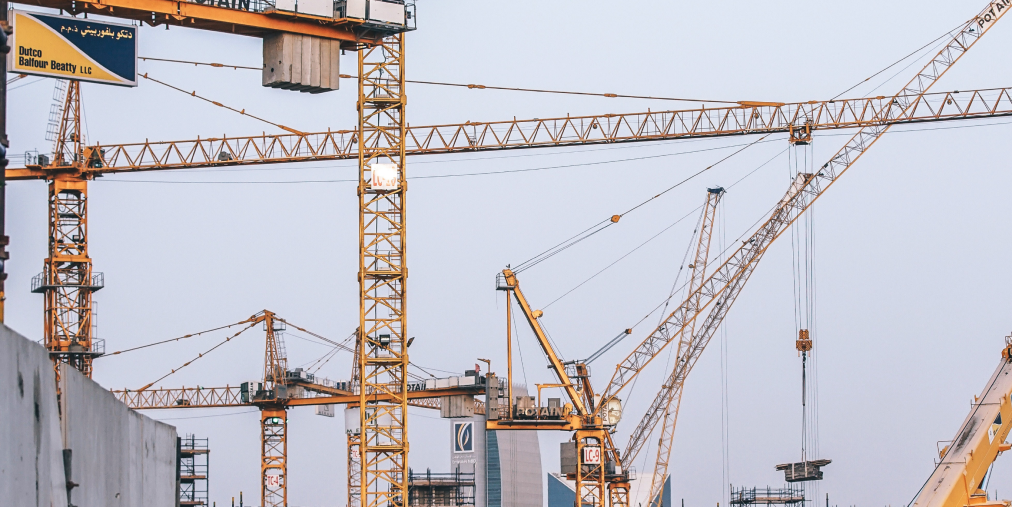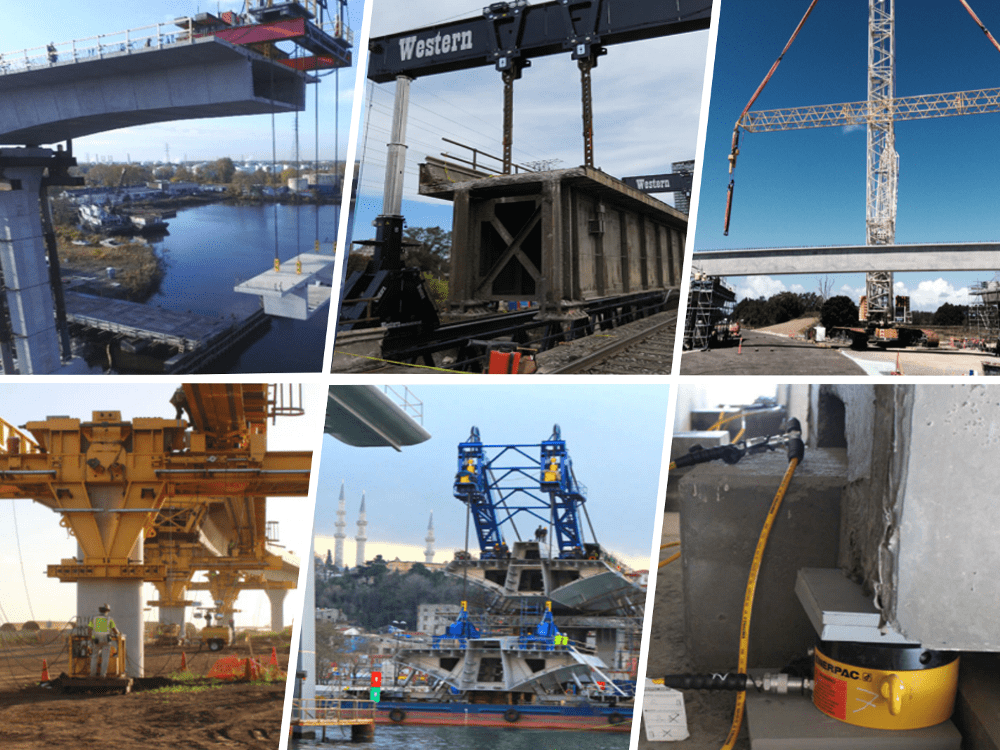Dozer Rental in Tuscaloosa AL: Reliable and Inexpensive Heavy Machinery
Dozer Rental in Tuscaloosa AL: Reliable and Inexpensive Heavy Machinery
Blog Article
Discovering the Financial Perks of Renting Building And Construction Devices Contrasted to Owning It Long-Term
The decision between leasing and having construction tools is essential for economic administration in the sector. Renting deals instant cost financial savings and operational flexibility, permitting business to designate sources much more successfully. On the other hand, ownership comes with significant long-term financial dedications, consisting of upkeep and devaluation. As professionals evaluate these choices, the influence on capital, task timelines, and technology gain access to comes to be increasingly substantial. Recognizing these nuances is important, particularly when taking into consideration exactly how they line up with details project requirements and economic techniques. What elements should be focused on to make certain optimum decision-making in this complicated landscape?

Expense Comparison: Renting Vs. Owning
When examining the economic effects of possessing versus leasing building and construction tools, a thorough expense contrast is crucial for making notified decisions. The selection between renting out and possessing can significantly influence a company's lower line, and recognizing the connected prices is vital.
Renting construction tools commonly involves reduced upfront prices, enabling businesses to assign funding to other functional needs. Rental contracts frequently include adaptable terms, enabling business to gain access to advanced machinery without lasting commitments. This versatility can be specifically useful for short-term jobs or rising and fall workloads. However, rental costs can accumulate with time, possibly going beyond the cost of ownership if tools is required for an extensive duration.
Conversely, having building and construction devices needs a considerable first investment, together with continuous costs such as depreciation, insurance policy, and financing. While ownership can bring about long-lasting financial savings, it also locks up capital and may not give the exact same degree of versatility as leasing. Furthermore, possessing tools necessitates a commitment to its use, which may not always align with job demands.
Inevitably, the choice to rent out or own ought to be based upon a detailed evaluation of details task demands, financial capability, and lasting strategic goals.

Upkeep Expenditures and Obligations
The choice in between possessing and leasing construction devices not just involves economic factors to consider yet additionally encompasses recurring maintenance costs and obligations. Owning tools calls for a significant commitment to its maintenance, that includes routine assessments, fixings, and possible upgrades. These obligations can rapidly build up, bring about unforeseen prices that can strain a budget.
In contrast, when leasing devices, upkeep is usually the duty of the rental firm. This plan permits service providers to prevent the economic burden related to deterioration, as well as the logistical challenges of organizing repair services. Rental arrangements frequently include provisions for maintenance, suggesting that specialists can focus on completing jobs as opposed to stressing concerning devices problem.
In addition, the diverse range of devices readily available for lease makes it possible for companies to pick the most up to date versions with innovative innovation, which can improve efficiency and productivity - scissor lift rental in Tuscaloosa Al. By choosing services, companies can avoid the long-lasting liability of equipment devaluation and the linked upkeep headaches. Eventually, assessing upkeep expenditures and obligations is important for making a notified decision regarding whether view publisher site to possess or rent construction devices, considerably impacting total job costs and operational effectiveness

Devaluation Influence On Ownership

A considerable aspect to think about in the choice to own construction equipment is the influence of devaluation on overall ownership expenses. Depreciation stands for the decrease in value of the devices with time, affected by aspects such as usage, wear and tear, and advancements in technology. As devices ages, its market price lessens, which can dramatically impact the proprietor's monetary setting when it comes time to sell or trade the tools.
For building and construction firms, this depreciation can equate to significant losses if the equipment is not made use of to its max potential or if it ends up being outdated. Proprietors must account for depreciation in their economic forecasts, which can result in greater general expenses compared to renting out. In addition, the tax obligation effects of depreciation can be complicated; while it may give some tax obligation advantages, these are commonly offset by the truth of minimized resale value.
Eventually, the concern of depreciation emphasizes the importance of comprehending the long-term go to this web-site economic dedication entailed in owning construction equipment. Business must carefully assess just how usually they will certainly make use of the devices and the potential economic effect of devaluation to make an educated choice about ownership versus renting out.
Financial Adaptability of Renting Out
Renting building and construction equipment offers considerable monetary flexibility, enabling companies to assign resources more efficiently. This flexibility is especially essential in a market identified by varying project demands and differing work. By choosing to rent, services can stay clear of the substantial funding investment required for purchasing equipment, preserving cash money flow for other operational needs.
In addition, renting out tools allows companies to customize their tools choices to specific task requirements without the long-term commitment connected with ownership. This implies that organizations can easily scale their devices stock up or down based on anticipated and existing project requirements. Consequently, this versatility lowers the risk of over-investment in equipment that may become underutilized or out-of-date gradually.
An additional economic benefit of renting is the possibility for tax benefits. Rental payments are commonly thought about operating costs, permitting instant tax obligation deductions, unlike depreciation on owned tools, which is spread over several years. scissor lift rental in Tuscaloosa Al. This immediate expenditure recognition can further enhance a firm's cash placement
Long-Term Task Factors To Consider
When evaluating the lasting demands of a building business, the choice in between having and renting equipment comes to be extra intricate. For tasks with extended timelines, purchasing equipment might seem useful due to the potential for lower overall prices.
The construction market is evolving swiftly, with new tools offering enhanced effectiveness and security functions. This adaptability is particularly helpful for services that deal with diverse jobs requiring different types of tools.
Additionally, economic stability plays an important role. Having tools typically involves substantial capital financial investment and devaluation issues, while renting out enables more predictable budgeting and capital. Ultimately, the selection between owning and renting out must be aligned with the calculated purposes of the building and construction business, considering both present and expected job needs.
Final Thought
In final thought, renting building and construction devices offers considerable economic advantages over lasting ownership. Inevitably, the decision to rent instead than own aligns with the dynamic nature of construction jobs, allowing for versatility and accessibility to the newest tools without the economic problems associated with ownership.
As equipment ages, its market worth diminishes, which can dramatically affect the owner's monetary placement when it comes time to market or trade the equipment.
Leasing construction equipment provides considerable monetary versatility, enabling business to allot sources more rc excavators efficiently.In addition, leasing equipment enables firms to customize their tools selections to details project needs without the long-lasting commitment associated with ownership.In final thought, leasing building and construction equipment supplies significant monetary advantages over long-term possession. Ultimately, the decision to lease rather than own aligns with the dynamic nature of construction tasks, enabling for flexibility and accessibility to the newest devices without the monetary worries linked with ownership.
Report this page